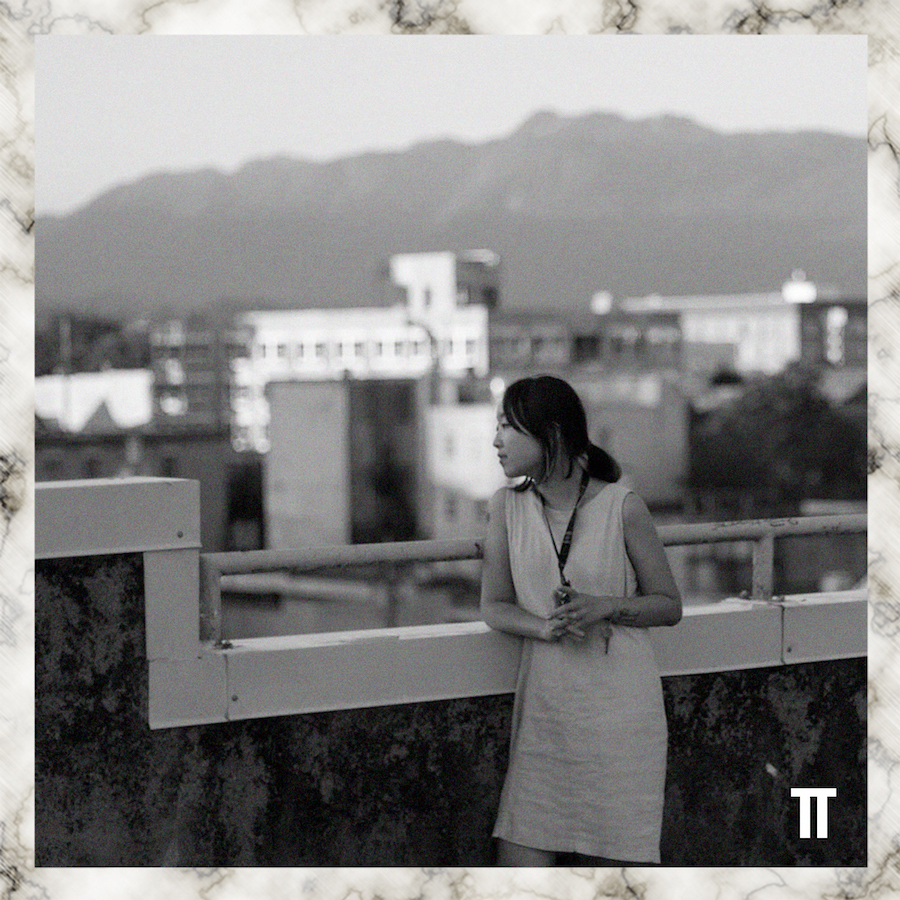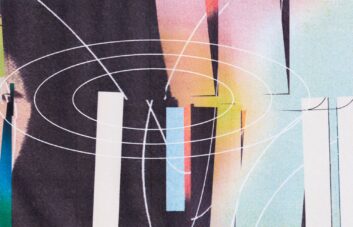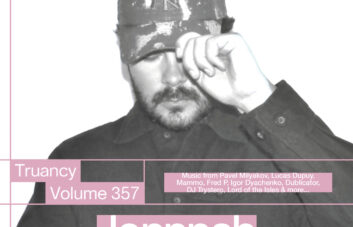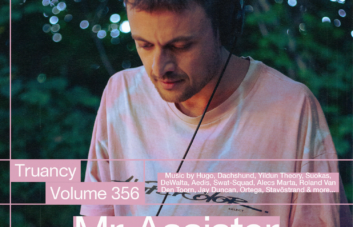To immerse yourself in Yu Su’s music is to give way to sensation, like closing your eyes to better feel the warmth of the sun. There’s a purity and lightness that emits from her melodies in which keys, woodwinds and drums melt into effortless rhythms. Organically groovy and powerfully transportive, Yu Su’s productions float between coasts, inspiring moments of reflection with their meditative quality. The Vancouver-based Chinese artist holds a unique perspective and highly personal voice, and has quickly gained recognition within the electronic music scene with releases on labels such as Arcane, Genero, PPU and Wichelrode. In addition to her solo work, Yu Su also produces under the moniker You’re Me alongside partner Scott Gailey, creating more experimental and downtempo takes on house music. As a DJ, Yu Su crafts evocative musical narratives which touch on memories and introspections, providing a small window into her world with every mix.
Recorded with the idea of representing the person she’s become over the past year, Truancy Volume 201 is a powerful reflection on Yu Su’s direct experience with loss and love. Opening with a Liszt piece which stands for her childhood, then moving on to an improvised midi-keyboard duet with her partner, through one of her very first records purchased after seriously getting into music, and ending with a track from a favorite director’s film A Brighter Summer Day, the mix, in Yu Su’s words, “wasn’t really curated by me, but for me.” It’s an honor to share this serene mix and a pleasure to have had some words with the brilliant artist.
Hey, Yu! What have you been up to in the new year? Any upcoming releases planned? “Planning a couple tours here and there as usual. The Arcane EP will be out in February, the reissue of Plant Cell Division on Jack [Murphy’s] label Knowing Something just came out, and the You’re Me trio is recording an album that should be out later this year. I’m kind of slow at the moment, and there is this sort of concept double-side that I’m trying to figure out with a friend. That’s all for the solid plans.”
Would you say your approach to music is more organic or deliberate? Does this differ when it comes to production versus DJing? “It really depends. I prefer to finish a song in one sitting, as you can always tell at the beginning of producing a song if everything will come out with a good flow that doesn’t need much touch-up. I’m not religious, but the Taoist concept of “unexpected events” has a huge influence on how I deal with things. You can be fully aware of what’s going on without any active effort. It’s a paradox. With DJing it goes the same, your body and mind can respond perfectly to any situation.”
There is a cinematic quality about your work—is this a conscious effort or something that happens naturally? Do you envision specific scenes or atmospheres for your productions? “For sure, I think all musical and sound works have a cinematic quality since I don’t believe in pure listening. There’s the effort of composing a piece of work and the non-effort of other human senses perceiving time and space while your hands and mind work around completing the piece. “Cinematic” also doesn’t have to be the only visual. By touching, listening, feeling movements of your body, like clicking your tongue (ecolocation), you are creating scenes and atmospheres that go into personal experience and memory, which will later be reconfigured throughout everyday life by creating art and interacting with the rest of the world.”
What draws you to the work of film director Edward Yang? Do you have a favorite scene from one of his films? “Edward Yang makes films that are emotional in the most humble way. As a citizen of mainland China, I was never taught much on the history of post-war Taiwan, though have learned a lot about it through his films, and I identify the teen version of myself a lot with the kind of impulsiveness, sensitivity and naiveness against state authority in a very passive Confucian way. Speaking of my favourite scene, I can only find this on youtube.”
As a child, was there a specific piece of music or artist that had a profound impact on you? Could you explain the significance of the Liszt piece featured in your mix? “Debussy’s “Arabesque No. 1” and this Liszt piece (“Liebestraume”). I studied classical piano for years and spent lots of time learning the technical and contrapuntal complexities of Bach’s music but was later on drawn more to the ambience of Debussy and Liszt, where the pieces are full of impressions and emotions.”
What is your relationship with the piano now that you predominantly work within the realm of electronic music? “I’m saving money to buy a digital piano with good weighted keys so I can practice every day. Piano music and electronic music to me share a lot in common, especially when it comes to composition. However, technologies in electronic music have opened up so many more possibilities for me to express things that can go beyond personal emotions, it’s a great tool.”
How did you go about buying your first records? What made you decide to start collecting? “I only started listening to music more selectively when I moved to Canada five years ago. I didn’t even know what vinyl was before that, haha. I got really into disco and funk after having my first party experience put up by Mood Hut, and started to explore this whole new world of music that I’d never heard of. Chic and Sade was one of the first ones I got my hands on. I didn’t care for their version of “At Last I Am Free” until I heard Robert Wyatt’s version later on. But last year when I lost my mom, I revisited the original, cried a lot and felt better after.”
Do you prefer to work alone or collaborate with a partner? How do you separate the musical identities? “I like both. I’ve only collaborated seriously with my partner Scott Gailey as You’re Me. As cheesy as it sounds, it’s pretty hard to find a musical romance kind of relationship. We are good at different things so it always work out pretty well. Scott is obsessed over every individual sound which really inspires me in a different way, and I’d say our project is more sensitive and deliberate.”
In what ways does your Vancouver environment influence your work? “All the talented people in Vancouver have been inspiring me so much, that might be the main influence for the moment. Learning new things about the west coast is also nice though there’s still discomfort and insecurities associated with the cultural differences that I face on a daily basis. I’d like to spend more time back home in the next decade, going back to my roots.”
Could you discuss your relationship with photography and how you go about choosing album artwork? “I don’t know much about photography, there are photographs that I really like and hate. I’ve only used two photographs as album artwork and they are both from friends I know, and the object in the photograph usually has something to do with a slice of memory.”
What’s your favorite meal to come home to? What do you enjoy doing to relax? “Everything! I cook everyday: Northern Chinese, Italian, Southeast Asian etc. I don’t bake much so I’m not a recipe person, which usually means that I make my own version of any cuisine I want to eat, with whatever I have at home. Buying flowers, grocery shopping, visiting my partner’s family and sitting around doing nothing are my top favourite activities other than music.”
Tracklist:
Liszt – Liebestraum
Terekke – Mix 91
Kraftwerk – Tanzmusik
Mamman Sani Abdoulaye – Five Hundred Miles
D.K. – Days of Steam
Wildflower – Flute Song
Maximum Joy – Searching for a Feeling
Sugai Ken – Utsuo No Maigiri
Lawrence Le Doux – Straight Teeth
Sakamoto – Hane No Hayashi De
You’re Me – Lunch In The Meadow
Art of Noise – Moments in Love (Love Beat)
Bevely Glen Copeland – Winter Astral
Codek – Closer
Coste Apetrea – Hej Dar
盧冠廷 – 一生所愛
Chic – At Last I am Free
Angel Baby (from A Brighter Summer Day)
Yu Su: Facebook, Instagram, Soundcloud, Twitter





can you please reupload it to wetransfer?